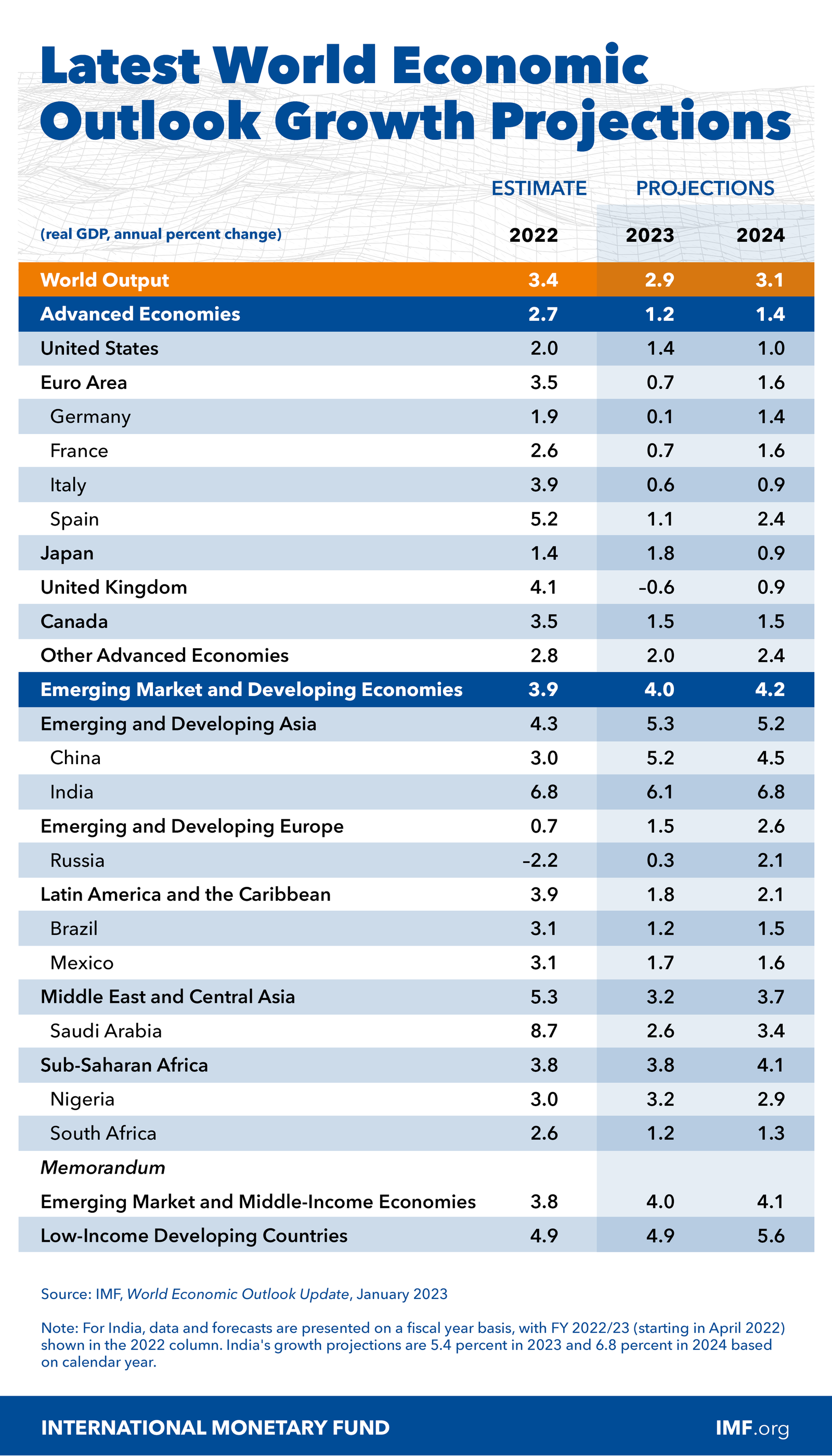
- Downgrades Global Prospects
By Louis Achi
The International Monetary Fund, IMF, has upgraded its projection for Nigeria’s 2023 economic growth rate to 3.2 per cent.
This represents 0.2 percentage points uptick from the 3.0 per cent earlier projected in its October 2022 World Economic Outlook, WEO.
The IMF however projected that global growth will fall from an estimated 3.4 percent in 2022 to 2.9 percent in 2023, then rise to 3.1 percent in 2024.
In its January World Economic Outlook, the IMF based its upgrade on improved security measures in the oil sector.
However, it indicated that the growth rate will slow down to 2.9 percent in 2024. The IMF’s 2023 projection is 0.55 percentage points lower than the 3.75 per cent economic (Gross Domestic Product, GDP) growth rate projected by the Federal Government of Nigeria.
It is, however, 0.3 percentage points higher than the World Bank’s projection of 2.9 per cent, and 0.1 percentage points higher than the African Development Bank’s projection of 3.1 per cent for Nigeria in 2023.
The IMF also projected that Nigeria’s enhanced economic growth in 2023 will lead to 4.1 percent economic growth for the sub-Saharan Africa region.
“In sub-Saharan Africa, growth is projected to remain moderate at 3.8 percent in 2023 amid prolonged fallout from the COVID-19 pandemic, although with a modest upward revision since October, before picking up to 4.1 percent in 2024,” IMF said.
It also noted that “The small upward revision for 2023 (0.1 percentage point) reflects Nigeria’s rising growth in 2023 due to measures to address insecurity issues in the oil sector.”
On the global big picture, the IMF upgraded its projection for the global economic contraction for 2023 to 3.4 per cent, from 2.9 per cent projected in October, 2022.
According the Fund, “Growth is projected to fall from an estimated 3.4 percent in 2022 to 2.9 percent in 2023, then rise to 3.1 percent in 2024. The forecast for 2023 is 0.2 percentage point higher than predicted in the October 2022 WEO but below the historical (2000–19) average of 3.8 percent.
It also stated that in most economies, amid the cost-of-living crisis, the priority remains achieving sustained disinflation.
In IMF’s words: “With tighter monetary conditions and lower growth potentially affecting financial and debt stability, it is necessary to deploy macroprudential tools and strengthen debt restructuring frameworks.
“Accelerating COVID-19 vaccinations in China would safeguard the recovery, with positive cross-border spillovers.
“Fiscal support should be better targeted at those most affected by elevated food and energy prices, and broad-based fiscal relief measures should be withdrawn.
“Stronger multilateral cooperation is essential to preserve the gains from the rules-based multilateral system and to mitigate climate change by limiting emissions and raising green investment.”


